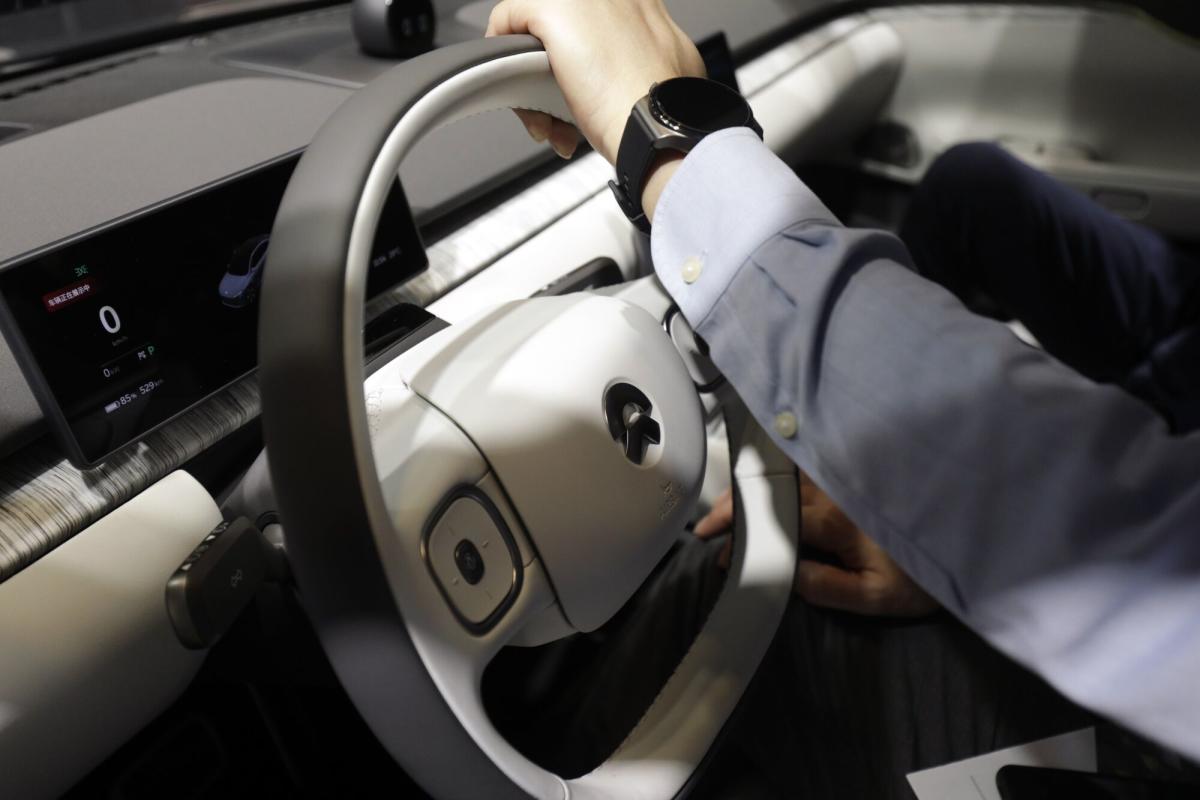(Bloomberg) — While Chinese tech companies have long harbored ambitions to move into the electric car industry, EV upstart Nio Inc. has gone the other way — on Thursday releasing its first mobile phone.
Most Read from Bloomberg
The unprofitable automaker is targeting its loyal customer base with the phone, which will sync with Nio cars to act as a key fob, view information such as battery charge, and control functions like self-parking and the in-cabin infotainment system. The Android-based handset will be priced from 6,499 yuan ($890) — the same as Huawei Technologies Co.’s latest flagship Mate 60 Pro — Nio said as it unveiled the phone at its ‘Innovation Tech Day’ in Shanghai.
“We want our phone to connect seamlessly with the car, and bring a better user experience to our car owners,” founder and Chief Executive Officer William Li said at the event. The phone will be sold via Nio’s online store, though initial deliveries may be limited due to supply constraints.
Read More: China Tech Giants Bet $19 Billion on Global Electric Car Frenzy
Founded in 2014, Nio has yet to turn a profit from its main auto business, and is burning through cash. It posted a larger-than-estimated loss of more than $800 million last quarter. In June, it raised around $738 million from a share sale to Abu Dhabi’s CYVN Holdings LLC, and earlier this week sold $1 billion of convertible bonds — sparking a 17% slump in its shares.
Despite a recent rebound in monthly deliveries, Nio shipped just 94,352 vehicles in the first eight months of the year — less than half its annual target of 250,000. To boost sales and bolster its balance sheet, the company has cut prices and wound back customer benefits, rolled out revamped models, and delayed some investments.
However, it has stuck with the mobile phone plan, which was first announced last year. In addition to the phone unveiling, Nio also showed off its so-called full-stack technology layout, including battery systems, chips, electric drivetrains, vehicle engineering, intelligent driving, smart cabins and artificial intelligence at the Innovation Tech Day.
The company has already started mass production of a laser-based radar memory control semiconductor that can save several hundred yuan per unit, Li said. However, the automaker will miss its goal of building battery swap stations in Europe this year.
Most Read from Bloomberg Businessweek
©2023 Bloomberg L.P.




